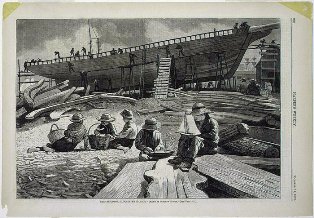Listen to this poem using the player above.

Inspired by Matthew Shipp’s April 1, 2010 performance in Troy, NY.
Gravity
(for Matthew Shipp)
Matthew has to force his hands
back down to the piano
stop them from floating away
maybe from carrying him away, too
when it’s quiet you can hear the machines
tearing up Green Dolphin Street
they smash through the tarmacadam
down to the cobblestones
but then something goes wrong
some failsafe fails, and the machines
plunge on, grinding
into clay and on into the crust
a rock shelf gives way
there’s a long metallic groan
as the biggest digger spirals down
into the molten core
Matthew stands up from the piano bench
when the crashing subsides, then
he pushes against the piano,
forearms lean and tight,
really putting his back into it
slowly, so slowly you almost
don’t notice it at first,
the piano starts rolling
Matthew is sweating now,
his brow damp, his jaw hard
the narrow end of the piano
hits the crash bar and the door opens
flooding the theater with red light
a few dollops of lava
are already cooling on the remnants
of the pavement outside
Matthew pushes the piano through the door
to the edge of the hole
gets down on his hands and knees
and listens, peering into the pit
when he’s sure it’s time, he rises,
pushes the piano again
until the front wheel
clears the edge of the hole
Matthew plays one final chord
as the keyboard lifts off the ground
then watches as the piano tumbles
end over end into the pit
leaning out over the hole
he follows the piano’s path until it’s out of sight
and it’s only then that Matthew realizes
he’s not quite touching the ground
so he lifts his arms to the sky
and the clouds accept him as he rises
welcoming their returning son
as he breaks the tether of gravity







